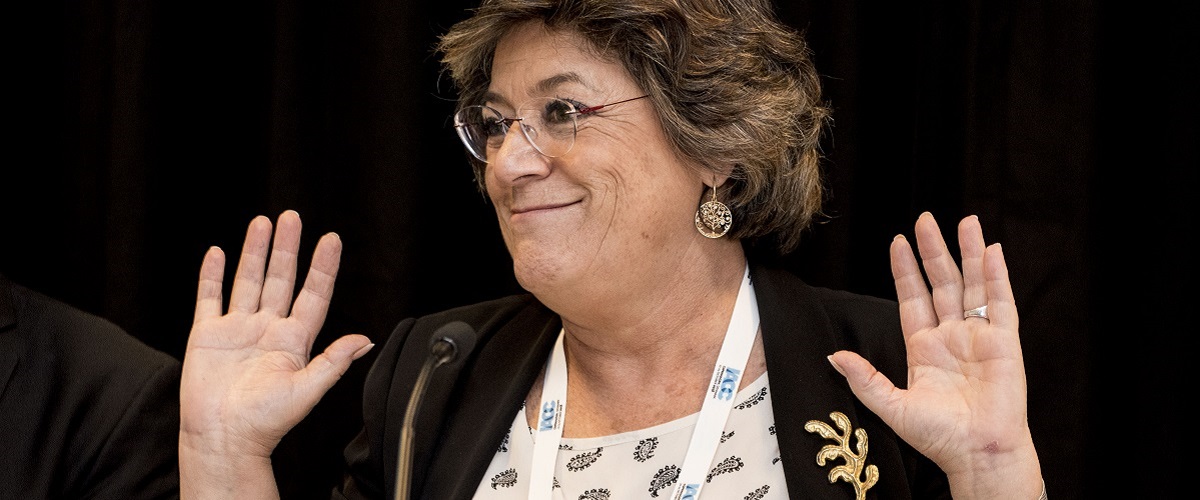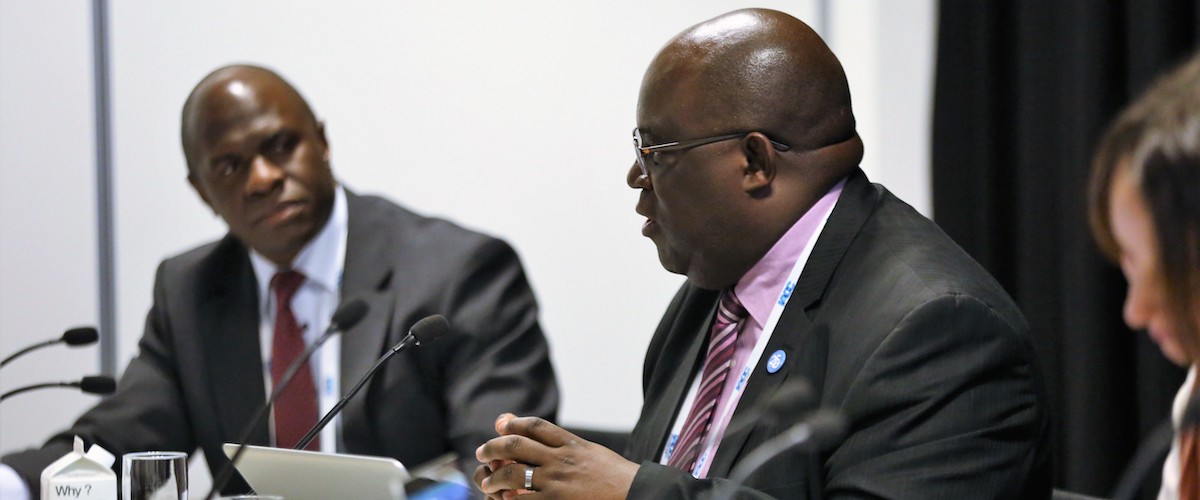
Portuguese MEP Ana Gomes at the session “Golden Ticket or Get out of Jail Free Card?” How to Stop the Corrupt from Buying Citizenship. (Image by Maurice Oniango.)
How much does it cost to get a European passport, or residency rights that give you access to housing and banks in Paris, Rome, or Brussels?
It can be as little as €350,000 in Portugal if you buy a house in the right neighbourhood or promise to create five jobs, according to Susana Coroado from Transparency International’s Portugal chapter.
“The scheme started in 2012 on the back of the country’s financial crisis. The banks and real estate sector were in a really tricky situation, property was not being sold,” she says. “The government created ‘golden visas’ to attract capital to the banks and find a way to deal with the amount of real estate that was empty. It became a big business.”
“Portugal handed out two golden visas in 2012. In 2017 the figure had risen to 1,351, spurred by government moves to attract wealthy foreigners following the financial crisis,” says Coroado.
It’s not just Portugal that offers these schemes — Spain, Hungary, Latvia, Portugal and the UK, for example, also have golden visa schemes — and there are concerns that it’s a system ripe for abuse.
“It’s so immoral: at the same time that member states are barring people from coming into Europe, deploying all sorts of paraphernalia to stop poor migrants, they are giving a golden corridor for the rich and wealthy with minimal checks,” said Ana Gomes, a member of European parliament for Portugal, at the “Golden Ticket or Get Out of Jail Free Card?” debate at the 18th International Anti-Corruption Conference in Copenhagen.
She is concerned that no one is doing the right checks to make sure that money launderers and people linked to organised crime are not given residency papers or passports especially since residency in one country gives access to Europe’s visa-free travel area, Schengen.
“Schengen is the price: access to Schengen. It’s not purely a national sovereign issue. It’s about the integrity of Schengen and security in the EU,” she said.
The phenomenon of golden visas and passports for sale originated in the Caribbean in the 1980s, according to Transparency International’s Laure Brillaud. It was taken up in North America before gaining traction in Europe following the European financial crisis in 2008.
“It’s a very lucrative business,” she says, with an estimated 6,000 passports sold in the last decade and 100,000 new residence permits granted.
The biggest problem is that the schemes seem almost deliberately opaque: no one knows who passports and visas are going to, and if the correct background checks are being done.
“Latvia has a 97 per cent approval rate,” says Brillaud. “But other countries [also] have a success rate of 90 per cent, which raises questions about how selective and scrupulous they are in terms of allocation.”
She raised examples of people involved in Brazil’s Lava Jato, or “operation car wash” corruption case, getting European residency rights despite the scandal, or a Chinese citizen wanted by Interpol. Other panelists mentioned Syrians close to President Bashar Al-Assad or candidates on American sanctions lists sailing through European selection processes.
“There is a risk that you are letting criminal or corrupt individuals into the EU,” said Brillaud. “Countries and companies are not doing sufficient risk profiling.”
Coroado says that in the Portuguese case there is a passing of the buck on background checks.
“When we ask who is checking the source of the money? The Portuguese authorities say that is the real estate agents and the banks. But the financial institutions say: ‘It’s not our business, we are not the police. It’s not our job to do this.’ Everybody is evading their responsibility.”
Sylwia Wolos, an expert on this subject from Thomson Reuters, says there are things that can be done to better check the credentials of those applying for golden visas: facial recognition, deep dives into people’s personal wealth, checks on family members and business connections — but she emphasises that many countries are failing to do it.
“You need to look at the family, the business ties,” she says. “You need expertise, to know the nitty gritty of these countries, how to interpret the information.”
She highlighted that another big problem is that many applicants come from China and Russia (in Hungary and Portugal, 60 to 80 per cent of applications are Chinese, while in Latvia, they are 70 per cent Russian, according to Transparency International) and without the language skills or expertise people are failing to pick up on past convictions or court appearances.
So what should be done? The European Parliament is currently preparing a report on this subject, according to MEP Gomes. But the panelists also called on countries to consider whether or not they want to sell citizenship for short term financial gain.
“Standards should be set at an EU level and harmonised to avoid this race to the bottom. We need a clear separation between those supposed to carry out due diligence and those with commercial interest,” said Brillaud.
“But first we need to have a discussion at an EU level on whether EU citizenship should be seen as a marketable commodity like any other.”


